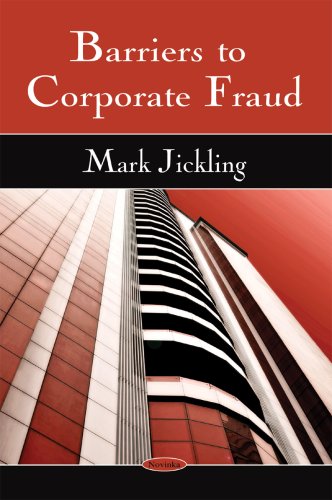Product desciption
Barriers To Corporate Fraud Mark Jickling by Mark Jickling 9781606923368, 1606923366 instant download after payment.
The collapse of Enron Corp. in the fall of 2001 had a peculiar side effect: accounting became front page news. For the next year, accounting fraud at a long series of "Fortune" 500 companies made headlines. The worst cases led to spectacular bankruptcies, mass layoffs, and criminal prosecutions. Many other companies remained intact, but paid millions of dollars to settle charges that their books did not correspond to financial reality. The economic costs of the corporate scandals were substantial: trillions of dollars in shareholder wealth lost and a climate of uncertainty that may have suppressed business investment and hiring after the 2001 recession ended. The barriers to corporate fraud set in place after the Great Depression had clearly failed to protect public investors and were put under close scrutiny. Congress responded by passing the Sarbanes-Oxley Act of 2002, strengthening regulation of auditors, directors, and corporate executives and increasing criminal penalties for fraud. During the 2003-2004 school year, Professor William Black's class at the Lyndon B Johnson School of Public Affairs of the University of Texas examined corporate fraud from a multi-disciplinary perspective. Rather than viewing fraud as simply a securities law matter, the class considered the insights of criminology, sociology, management science, business ethics, behavioural economics, complex systems theory, and other fields. This book is the result of their investigations. The book focuses on the internal controls on American corporations (including corporate governance, business ethics, managerial structure and compensation, internal counsel, and whistleblowers), as well as external controls (government regulation, external auditors and accountants, and the judicial process). A recurring theme is the limited efficacy of many safeguards and watchdogs in cases of 'control fraud', where fraud is directed or abetted by top management, and where unethical or abusive practices may become the organisational norm. It may then be easier for employees, directors, auditors, and even government regulators to go along with the prevailing trends, rather than take a stand which might disrupt the smooth functioning of the business, and could bring on devastating personal and organisational consequences. Another broad question raised by the book is whether the post-Enron scandals were a one-time event, made possible by the stock market bubble of the 1990s and several other unique historical developments which together constituted a 'perfect storm', or whether fraud is a cyclical phenomenon associated with the end of long bull markets. The question has policy implications: if recent corporate scandals represent an unfortunate result of a unique set of conditions, one might conclude that the restraints now in place are sufficient to prevent outbreaks of fraud under normal circumstances. On the other hand, if fraud is cyclical and can be expected to reappear once stock prices begin to soar again, one might conclude that the post- Enron scandals have revealed fundamental weaknesses in law and regulation.


